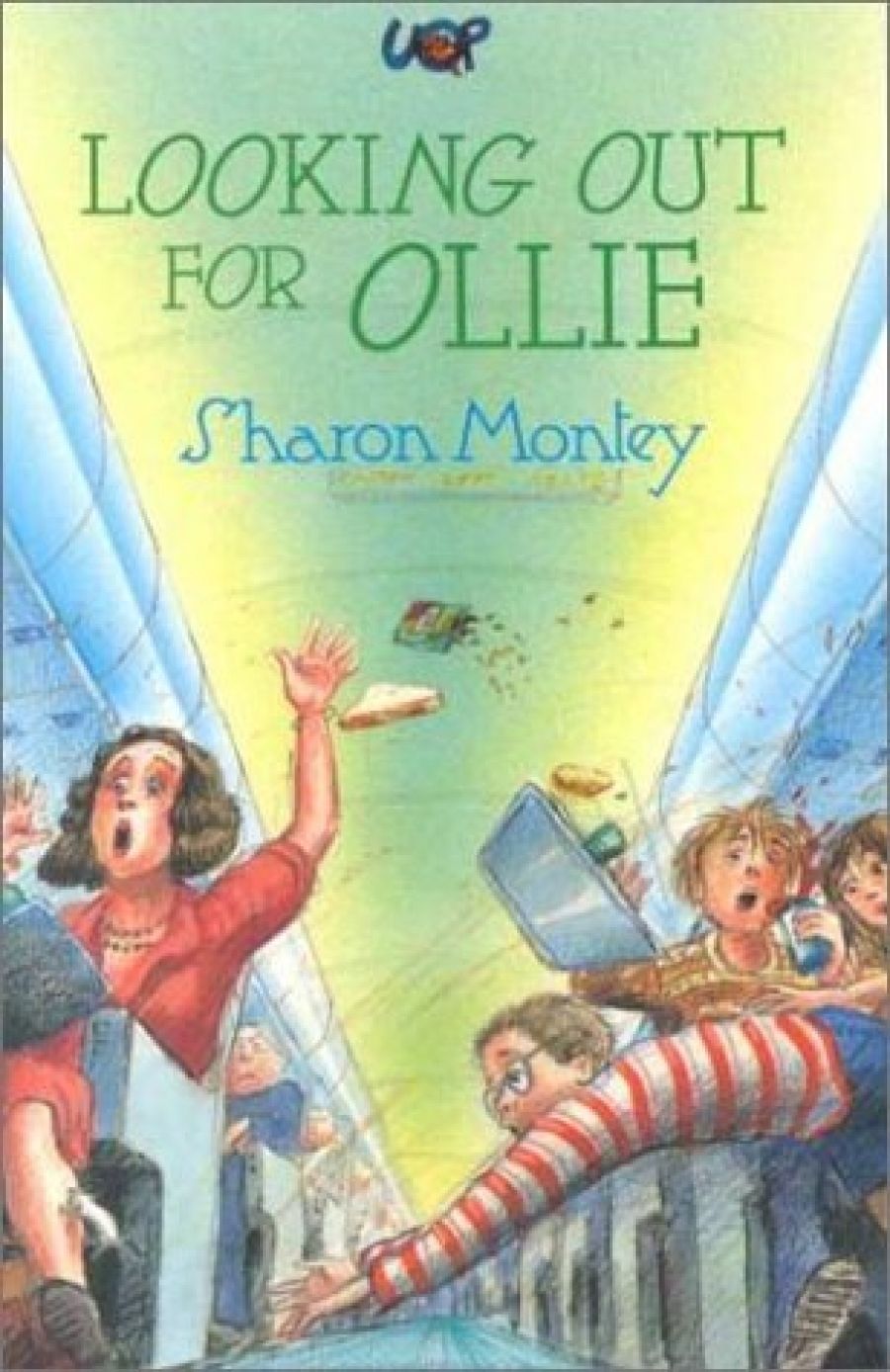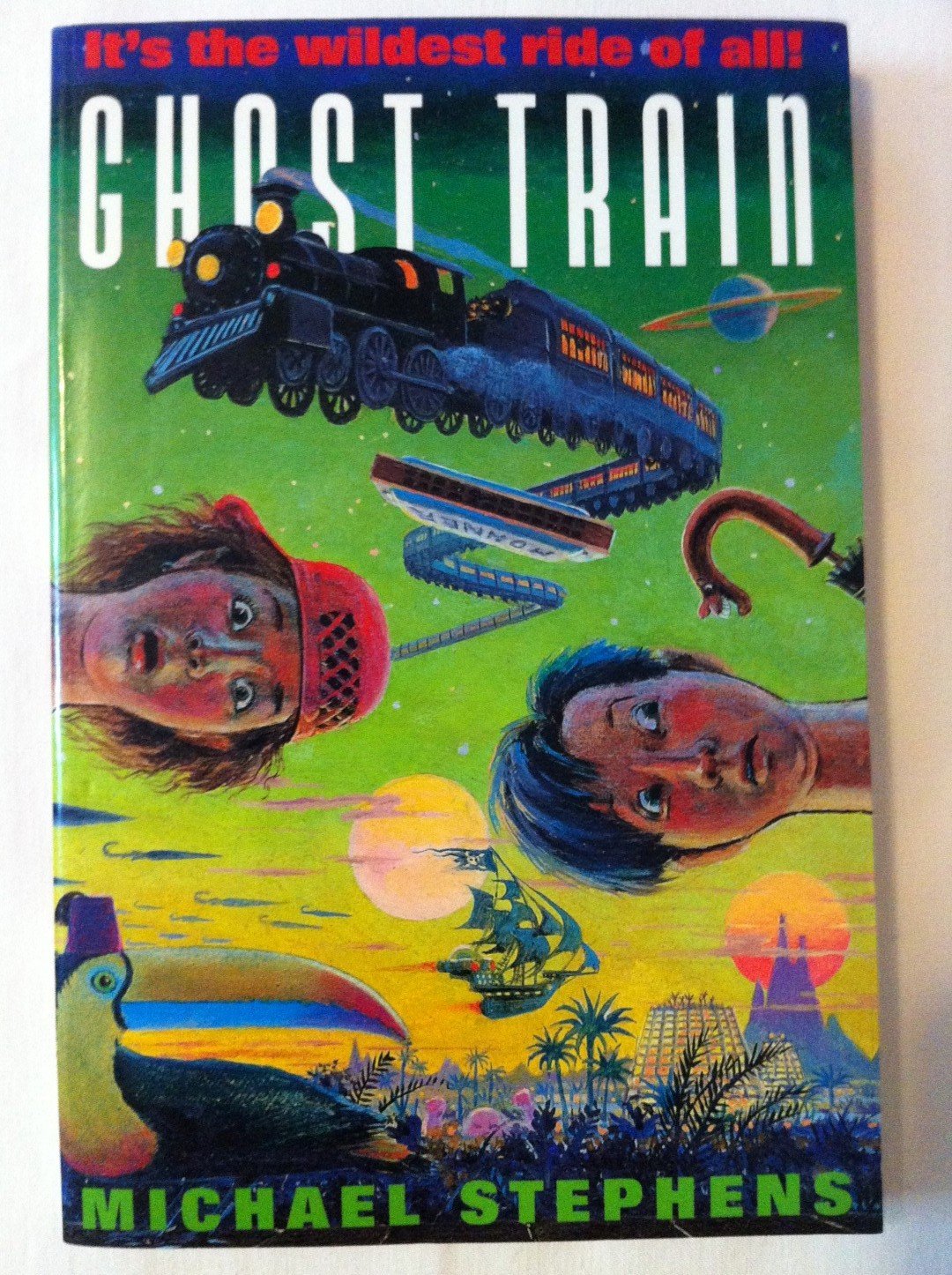
- Free Article: No
- Contents Category: Children's and Young Adult Fiction
- Review Article: Yes
- Article Title: Tell them a story
- Online Only: No
- Custom Highlight Text:
Writers for children have always known this: from the Puritans who thinly disguised their religious teachings under stories of children who lived a pure life and went to heaven, and those who didn’t and went to hell; to modem writers who tell stories to help children cope with difficult aspects of modem life.
- Book 1 Title: Looking Out for Ollie
- Book 1 Biblio: UQP, $9.95 pb
- Book 2 Title: Ghost Train
- Book 2 Biblio: Allen & Unwin, $9.95 pb
- Book 2 Cover Small (400 x 600):

Although didacticism still exists, today’s writers do not always set out to ‘teach a lesson’, and may well use humour as a means of ‘saying something about life’. The three books to be discussed here all use that technique. Barry Dickins’s Joey is an autobiographical piece, telling of his family’s involvement with one special dog – Joey of the title. It is an episodic narrative which uses the four seasons of the year in both a literal and metaphorical sense as we learn of incidents in the life of Joey and the family’s increasing attachment to him. Inevitably, of course, Joey becomes old and dies and his few years are rather troubled ones, as he becomes increasingly forgetful and disobedient. This in no way lessens the family’s love for him and their grief is profound when he dies.
The book is a poignant one, combining Dickins’s well-known wit and humour as a raconteur with pathos. The book demonstrates the importance of storytelling as well as the importance of seemingly small incidents in the life of a family. The zany illustrations have the recognisable Dickins stamp and give visual support to the written text, which helps make the book accessible for the middle-primary age group. It is, however, a book which will also be enjoyed by any person who has loved a pet.
Looking Out for Ollie is a first novel for Sharon Montey and is also a story of family life. It is written in the first person, from the point-of-view of the eldest child – and only girl – of three children who live with their parents behind the family’s take-away food shop. When the parents decide to take a much-needed holiday away alone, the children are sent to stay with their grandparents and it’s there, in particular, that Alana, the eldest, needs to ‘look out for Ollie’. The book has some very amusing passages such as when Ollie’s white mouse, which he has smuggled on the flight to Brisbane, gets loose. There is one incident when the children and their grandfather have a fight with compost, where the scatological humour seems a little forced, almost as though it is specially introduced because the author knows that middle-primary age children enjoy such humour.
Relating the book to Manning Clark’s statement though, there are messages in the book about coming to terms with difficulties (the children learn that their father has had a heart operation in the time they are with their grandparents); learning responsibility; growing up and family relationships.
There are, however, aspects which are somewhat unconvincing. We are, for example, told that the family is always worried about money and yet, when the children are given money to buy clothes but spend most of it on a Barrier Reef viewing cruise, their mother does not really seem to mind. It is perhaps unfortunate too, in these days when there is so much awareness of the need to avoid stereotyping of characters, that Ollie should be described as ‘like a mini-professor, glasses and all’.
The third book in this group is also the longest. It is Ghost Train by Michael Stephens, whose book, Titans!, was shortlisted in the Children’s Book Council of Australia Awards in 1993. It is an adventure story, full of action, anthropomorphic objects and creatures, children as heroes and technological wizardry. There is humour too, sometimes used to provide caricatures which make the ‘baddies’ somewhat less threatening. The worst of these are the parents of one of the main characters, Harry. His father is an English teacher who, when Harry tries to ask why their relationship has deteriorated to the point where Harry feels as if he is disappearing, answers:
You can’t even talk in proper sentences. Every sentence needs a proper subject, verb and object. And adults are never the proper subject of an eleven year-old’s sentences.
The importance of developing children’s self-esteem is the basic and perhaps the most important underlying theme in the book, but there is also a significant philosophical debate between a number of the characters on the planet Vega Sixteen to which the children are forced to go. This is about the nature of freedom and the value of choice. This is clearly a very important point, but it is done a little heavy-handedly. Eventually, although the children are offered a long, safe and comfortable life on Vega Sixteen, they have not chosen it and recognise it as the metaphorical ‘cage’ described by one of the other characters and they therefore reject it, escape, and return to Earth.
All three books are ‘good stories’, which will certainly say something about life and growing-up to their readers.


Comments powered by CComment